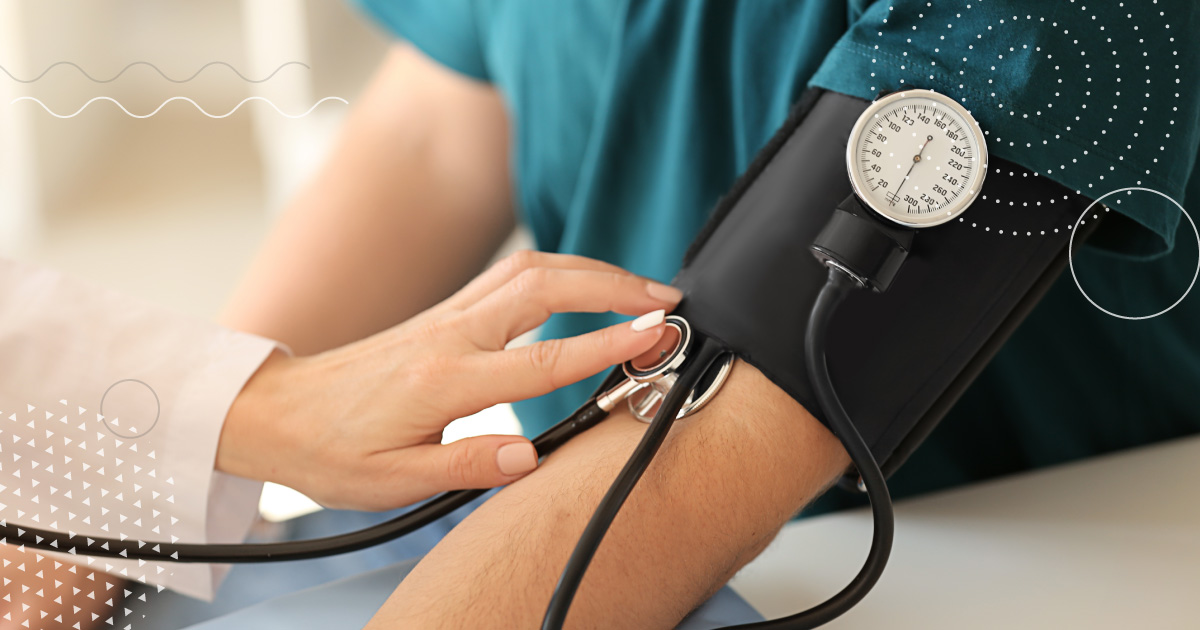The Surprising Connection Between Dehydration and High Blood Pressure

Are you drinking enough water? You might be surprised to learn that staying hydrated is not just about quenching your thirst – it’s also important for maintaining healthy blood pressure. Let’s discuss how dehydration and high blood pressure are connected and what you can do to stay healthy.
Understanding Dehydration
Dehydration happens when your body loses more fluids than it takes in. This can happen for several reasons, like sweating a lot, not drinking enough water, or being sick with vomiting or diarrhea. When your body doesn’t have enough water, it can’t work properly, leading to various health problems.
How Dehydration Affects Blood Pressure
Here’s a simple explanation – your blood is about half water. When you’re dehydrated, your blood becomes thicker, making your heart work harder to pump it around your body. This can cause your blood pressure to go up. Dehydration can cause your body to release hormones like aldosterone and vasopressin, which tighten blood vessels and raise blood pressure.
The Role of Electrolytes
Electrolytes like sodium and potassium play an important role in maintaining fluid balance in your body. When you’re dehydrated, your electrolyte levels can become imbalanced. High sodium levels can cause your body to retain water, increasing your blood pressure. On the other hand, low potassium levels can affect the function of your heart and muscles, which can also influence blood pressure.
Signs of Dehydration
Recognizing the signs of dehydration is important so you can act quickly. Some common signs include:
- Thirst – Feeling very thirsty is often the first sign that you need more fluids.
- Dry mouth and sticky saliva – A decrease in saliva production can make your mouth feel dry and sticky.
- Fatigue and weakness – Dehydration can drain your energy and make you feel weak.
- Dizziness or lightheadedness – Not having enough fluids can affect your blood pressure, causing dizziness or faintness.
- Dark-colored urine – When you’re dehydrated, your urine can become darker than usual.
- Reduced urine output – Drinking less water can lead to less frequent and smaller amounts of urine.
- Dry skin – Your skin may become dry, less elastic, and more prone to irritation when you’re not well-hydrated.
- Headache – Dehydration can cause headaches or make existing ones worse.
- Muscle cramps – An imbalance of electrolytes from dehydration can lead to muscle cramps or spasms.
- Rapid heartbeat – Dehydration can increase your heart rate or cause palpitations.
Staying Hydrated
Staying hydrated is one of the simplest things you can do to keep your blood pressure in check. Here are some easy tips:
- Be sure to drink water frequently during the day, even when you’re not feeling thirsty.
- Eat foods with high water content, like fruits and vegetables.
- Carry a water bottle with you to remind yourself to drink.
- Avoid drinks that can dehydrate you, like alcohol and caffeine.
When to Seek Help
If you often feel dehydrated or if you have high blood pressure, it’s a good idea to talk to your doctor. They can help you understand the connection between your hydration levels and blood pressure. They can also give you advice on how to stay hydrated and keep your blood pressure at a healthy level.
If you experience severe dehydration or certain symptoms, it’s important to seek medical help immediately. Here are some key situations to watch out for:
- Persistent vomiting – If you can’t keep fluids down due to persistent vomiting, dehydration can get worse quickly. Medical intervention might be needed.
- Prolonged diarrhea – If you have diarrhea lasting more than 24 hours, especially if it’s bloody or comes with severe abdominal pain, it’s time to see a doctor.
- Severe dehydration symptoms – Be alert for signs like confusion, dizziness, rapid breathing, a fast heart rate, or fainting. These require immediate medical care.
- High fever or heat exposure – If you have a high fever, have been in extreme heat, or haven’t been able to urinate for several hours, seek medical attention.
- Chronic illness – If you have a condition like diabetes or kidney disease and notice symptoms of dehydration, it’s best to consult a healthcare professional for proper management.
Seeking medical help for severe dehydration is vital to avoid complications and ensure you get the right treatment.
Drinking enough water is not just about staying hydrated – it can also help keep your blood pressure normal. By paying attention to how much water you drink and recognizing the signs of dehydration, you can take simple steps to protect your health. If you have any concerns about dehydration or high blood pressure, don’t hesitate to reach out to a healthcare professional. For more tips on staying healthy, visit Physicians Premier.
Staying hydrated is easy and can make a big difference in your overall health. Make it a habit to drink water regularly, and you’ll be doing your body a big favor.
Sources:
“Dehydration,” Mayo Clinic, https://www.mayoclinic.org/diseases-conditions/dehydration/symptoms-causes/syc-20354086
“The Link Between Dehydration and Blood Pressure,” Cleveland Clinic, https://health.clevelandclinic.org/dehydration-and-blood-pressure
“Dehydration,” Sinai Dignity Health, https://www.dignityhealth.org/arizona/services/emergency-services/when-to-go-to-er/dehydration


